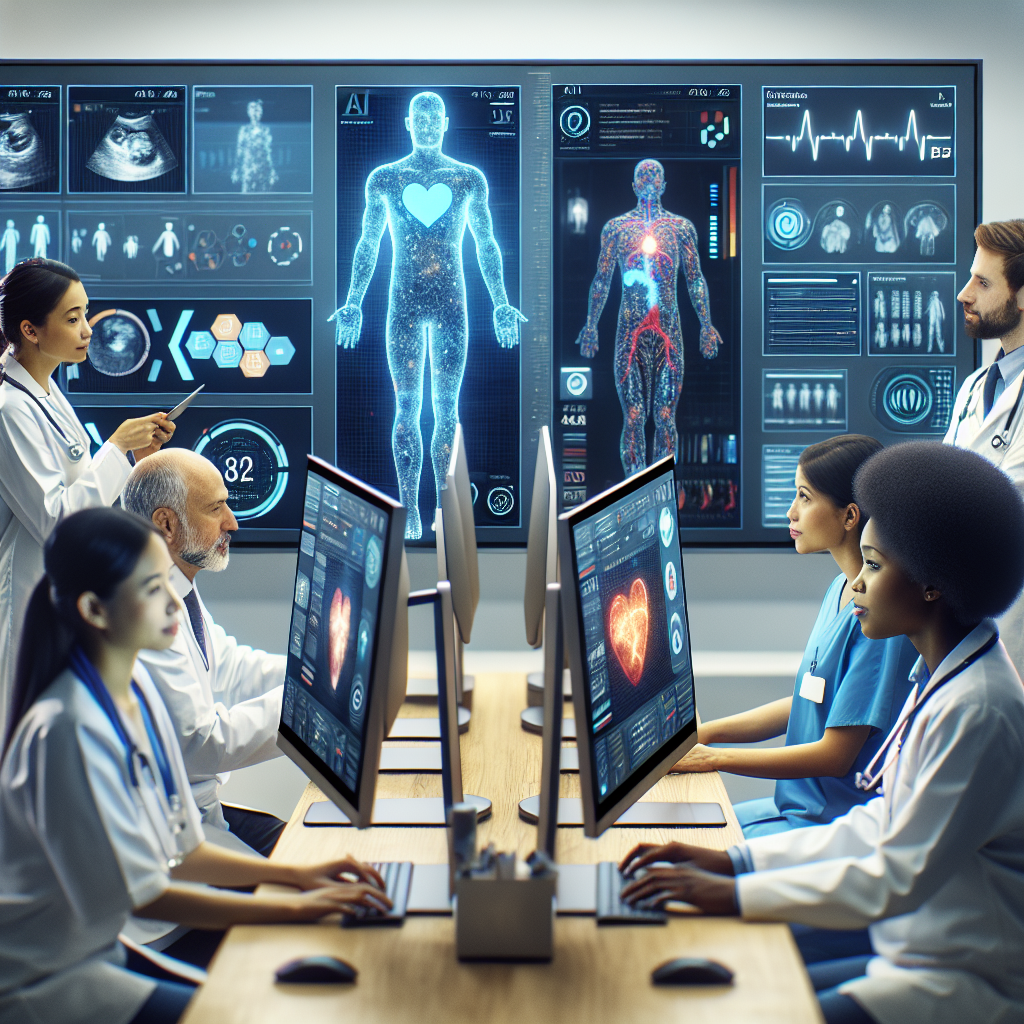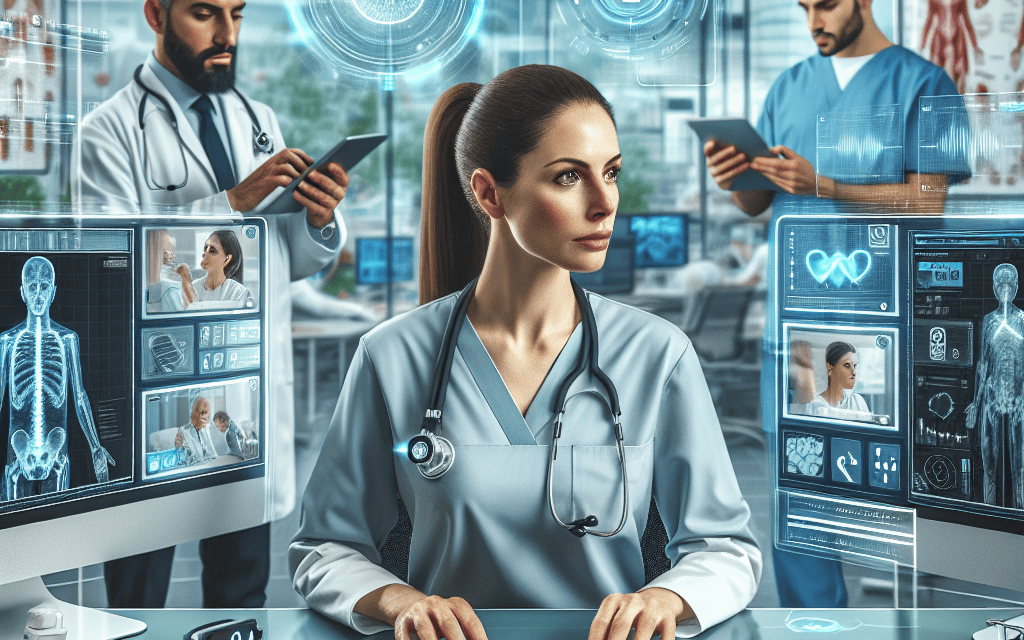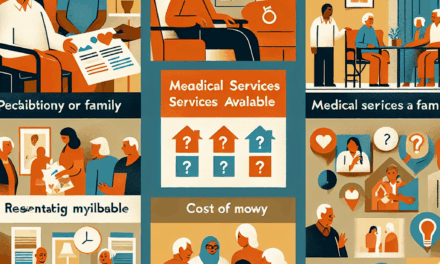Why AI-Enhanced PCs Are Revolutionizing Healthcare Workspaces

In the rapidly evolving landscape of healthcare, technology continues to play a pivotal role in transforming how medical professionals deliver care. Among the most significant advancements is the integration of artificial intelligence (AI) into personal computers (PCs) within healthcare workspaces. AI-enhanced PCs are not just a futuristic concept; they are actively reshaping the way healthcare is administered, improving efficiency, accuracy, and patient outcomes. This article delves into the multifaceted impact of AI-enhanced PCs in healthcare, exploring their role in data management, diagnostics, patient care, administrative tasks, and research.
1. Streamlining Data Management and Analysis
Data management is a cornerstone of modern healthcare, with vast amounts of patient information, research data, and clinical records generated daily. AI-enhanced PCs are revolutionizing how this data is managed and analyzed, offering unprecedented capabilities that streamline processes and enhance decision-making.
One of the primary benefits of AI in data management is its ability to process and analyze large datasets quickly and accurately. Traditional methods of data analysis can be time-consuming and prone to human error. AI algorithms, however, can sift through vast amounts of data in seconds, identifying patterns and insights that might be missed by human analysts. This capability is particularly valuable in healthcare, where timely and accurate data analysis can significantly impact patient outcomes.
For example, AI-enhanced PCs can analyze electronic health records (EHRs) to identify trends in patient health, predict potential health risks, and suggest personalized treatment plans. This not only improves patient care but also reduces the burden on healthcare professionals, allowing them to focus on more critical tasks. A study published in the Journal of Medical Internet Research found that AI-driven data analysis reduced the time spent on administrative tasks by up to 30%, freeing up valuable time for patient care.
Moreover, AI-enhanced PCs facilitate better data integration across different healthcare systems. By using machine learning algorithms, these PCs can harmonize data from various sources, creating a unified view of patient information. This integration is crucial for providing comprehensive care, as it ensures that healthcare providers have access to all relevant patient data, regardless of where it was generated.
- Improved accuracy in data analysis
- Faster processing of large datasets
- Enhanced data integration across systems
- Reduction in administrative workload
- Personalized patient care through data insights
2. Enhancing Diagnostic Accuracy and Speed
Diagnostics is another area where AI-enhanced PCs are making a significant impact. The ability to diagnose conditions accurately and quickly is crucial in healthcare, as it directly affects treatment outcomes. AI technologies integrated into PCs are enhancing diagnostic processes by providing tools that assist healthcare professionals in making more informed decisions.
AI algorithms can analyze medical images, such as X-rays, MRIs, and CT scans, with remarkable precision. These algorithms are trained on vast datasets of medical images, enabling them to recognize patterns and anomalies that might be overlooked by the human eye. For instance, AI-enhanced PCs have been used to detect early signs of diseases such as cancer, often with greater accuracy than traditional methods. A study published in Nature Medicine demonstrated that an AI system outperformed radiologists in detecting breast cancer in mammograms, reducing false positives and negatives.
In addition to image analysis, AI-enhanced PCs are also being used to improve diagnostic processes through natural language processing (NLP). NLP algorithms can analyze unstructured data, such as clinical notes and patient histories, extracting relevant information that aids in diagnosis. This capability is particularly useful in complex cases where multiple factors need to be considered.
Furthermore, AI-enhanced PCs can provide decision support tools that assist healthcare professionals in choosing the most appropriate diagnostic tests and treatment plans. By analyzing patient data and comparing it with similar cases, these tools can suggest evidence-based recommendations, reducing the likelihood of diagnostic errors.
- Improved accuracy in medical imaging analysis
- Early detection of diseases
- Enhanced natural language processing for unstructured data
- Decision support tools for diagnostics
- Reduction in diagnostic errors
3. Transforming Patient Care and Monitoring
AI-enhanced PCs are also transforming patient care and monitoring, offering tools that improve the quality and efficiency of healthcare delivery. These technologies enable healthcare providers to offer more personalized and proactive care, ultimately enhancing patient outcomes.
One of the key applications of AI in patient care is remote monitoring. AI-enhanced PCs can process data from wearable devices and sensors, providing real-time insights into a patient’s health status. This capability is particularly valuable for managing chronic conditions, as it allows healthcare providers to monitor patients continuously and intervene when necessary. A study published in the Journal of Medical Internet Research found that remote monitoring using AI technologies reduced hospital readmissions by 20% among patients with chronic heart failure.
AI-enhanced PCs also facilitate personalized treatment plans by analyzing patient data and identifying the most effective interventions. By considering factors such as genetics, lifestyle, and medical history, AI algorithms can suggest tailored treatment plans that are more likely to succeed. This personalized approach not only improves patient outcomes but also enhances patient satisfaction, as individuals receive care that is specifically designed for their needs.
Moreover, AI-enhanced PCs are being used to improve patient engagement and education. Through interactive interfaces and virtual assistants, patients can access information about their conditions, treatment options, and self-care strategies. This empowerment leads to better adherence to treatment plans and improved health outcomes.
- Real-time remote monitoring of patients
- Personalized treatment plans
- Improved patient engagement and education
- Reduction in hospital readmissions
- Enhanced patient satisfaction
4. Optimizing Administrative Tasks and Workflow
Administrative tasks are a significant burden in healthcare, often consuming valuable time and resources that could be better spent on patient care. AI-enhanced PCs are revolutionizing administrative processes by automating routine tasks and optimizing workflow, leading to increased efficiency and reduced costs.
One of the primary applications of AI in administrative tasks is the automation of scheduling and appointment management. AI-enhanced PCs can analyze patient data and preferences to optimize appointment scheduling, reducing wait times and improving patient satisfaction. This automation also minimizes the risk of scheduling errors, ensuring that healthcare providers can manage their time more effectively.
AI technologies are also being used to streamline billing and coding processes. By analyzing patient records and insurance information, AI-enhanced PCs can automatically generate accurate billing codes, reducing the likelihood of errors and ensuring timely reimbursement. A study published in the Journal of Healthcare Management found that AI-driven billing systems reduced claim denials by 15%, leading to significant cost savings for healthcare organizations.
Furthermore, AI-enhanced PCs can improve workflow by





